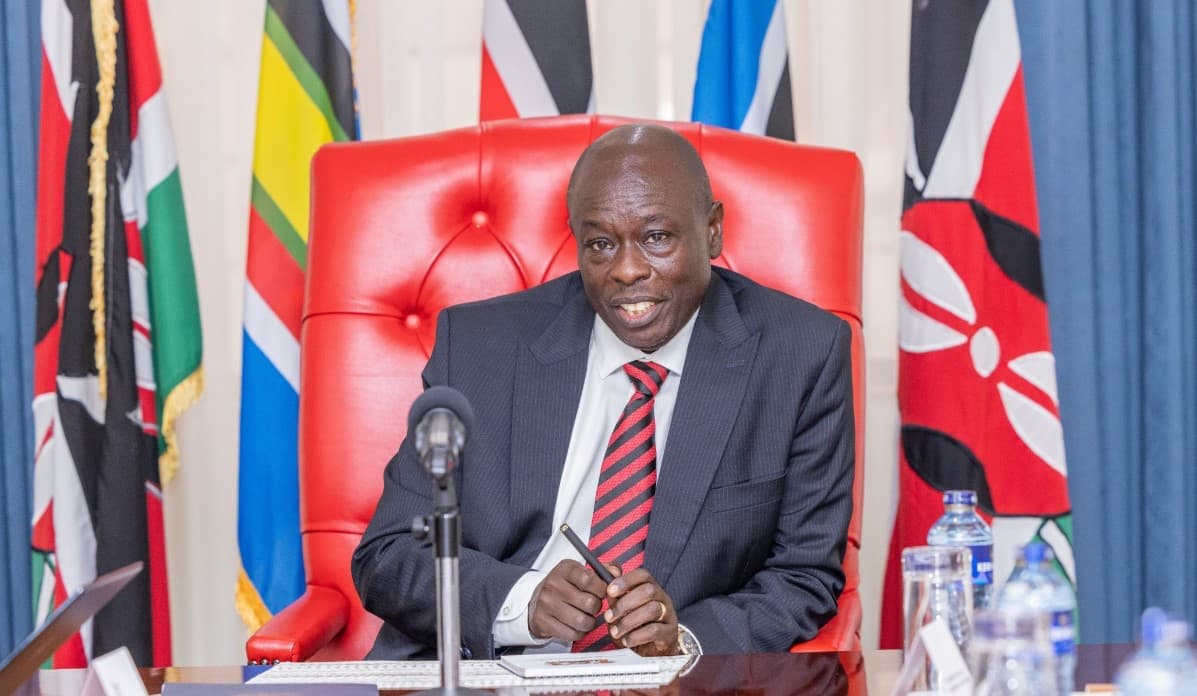We're loading the full news article for you. This includes the article content, images, author information, and related articles.
Former Deputy President Rigathi Gachagua claims President William Ruto's engagement with Sudan's Rapid Support Forces (RSF) led to a ban on Kenyan tea exports, causing significant financial distress for local farmers.

Former Deputy President Rigathi Gachagua has attributed the ongoing suffering of Kenyan tea farmers to a deal between President William Ruto and the Rapid Support Forces (RSF), a rebel movement in Sudan. Speaking in Kericho on Sunday, October 5, 2025, Gachagua stated that this engagement led to Sudan banning Kenyan tea imports, severely impacting the sector.
Gachagua claimed that during his tenure overseeing tea reforms, the industry thrived, but a single decision by President Ruto disrupted years of progress. He alleged that President Ruto's business ties with Mohamed Hamdan Dagalo, also known as Hemedti, the leader of the RSF, prompted the Sudanese government to impose the ban.
The diplomatic fallout between Kenya and Sudan escalated after Kenya hosted a meeting in Nairobi on February 23, 2025, that included Sudan's RSF and allied political groups. This meeting, where a political charter and transitional constitution were reportedly signed, was viewed by Khartoum as an affront to Sudan's sovereignty and an attempt to legitimize a rival authority in RSF-held territories.
Following this, Sudan's military-led administration imposed a ban on all Kenyan imports on March 11, 2025, citing a need to preserve the country's sovereignty and protect its national security.
President Ruto, however, maintained on April 1, 2025, that Kenya was still exporting tea to Sudan, a claim that the Sudanese government publicly denied.
Sudan is historically one of Kenya's top five tea export destinations, with a particular demand for specific tea grades that are not easily absorbed by other markets.
The ongoing embargo has led to mounting financial losses for Kenya's tea industry, estimated to exceed Sh6.5 billion annually. Tea shipments to Sudan significantly declined by over a third, from 2.17 million kilograms in February 2025 to 1.41 million kilograms in March 2025. This decline contributed to a 13% drop in Kenya's total tea exports in March 2025 compared to the same month in 2024.
Exporters and farmers are grappling with unfulfilled contracts and threatened livelihoods. In June 2025, Sudan temporarily allowed Kenya to clear approximately 400 bags of tea already in transit at Port Sudan, but the broader trade freeze remains in effect.
Tea industry stakeholders, including the East Africa Tea Trade Association (EATTA), have urged the Kenyan government to engage Sudanese authorities to find a lasting solution. Peter Kimanga, a Director at the Kenya Tea Development Authority (KTDA), highlighted the unique challenges posed by the Sudanese market, emphasizing that the ban threatens bonuses and incomes for smallholder farmers.
Concerns have also been raised regarding the significant volume of tea, including 207 containers, that were stranded at the Port of Mombasa or Port Sudan, with some already packaged and branded specifically for the Sudanese market, making redirection difficult.
The prolonged ban poses a significant risk to the livelihoods of thousands of Kenyan tea farmers and the overall stability of the tea sector, a major foreign exchange earner for Kenya. The diplomatic tensions could also have broader implications for regional trade relations and Kenya's mediation efforts in the Sudanese conflict.
The exact nature and extent of President Ruto's alleged business dealings with Hemedti remain unverified from the provided input. While Gachagua made the assertion, no independent verification of direct business partnerships between President Ruto and Hemedti was found in the provided search results. Hemedti's business interests are well-documented, primarily through his family's company Al-Junaid, which has diversified into various sectors.
The Kenyan government's diplomatic efforts to resolve the trade dispute with Sudan will be crucial. Monitoring the impact of the ban on tea farmer incomes and potential diversification strategies for Kenyan tea exports will also be important. Further developments regarding the Sudanese civil conflict and Kenya's role in regional mediation efforts could also influence the situation.
Sudan's ongoing civil war between the Sudanese Armed Forces (SAF) and the Rapid Support Forces (RSF) has caused a severe humanitarian crisis, displacing millions. The conflict has significantly impacted Sudan's economy and its trade relations with regional partners.
Keep the conversation in one place—threads here stay linked to the story and in the forums.
Sign in to start a discussion
Start a conversation about this story and keep it linked here.
Other hot threads
E-sports and Gaming Community in Kenya
Active 9 months ago
The Role of Technology in Modern Agriculture (AgriTech)
Active 9 months ago
Popular Recreational Activities Across Counties
Active 9 months ago
Investing in Youth Sports Development Programs
Active 9 months ago
Key figures and persons of interest featured in this article